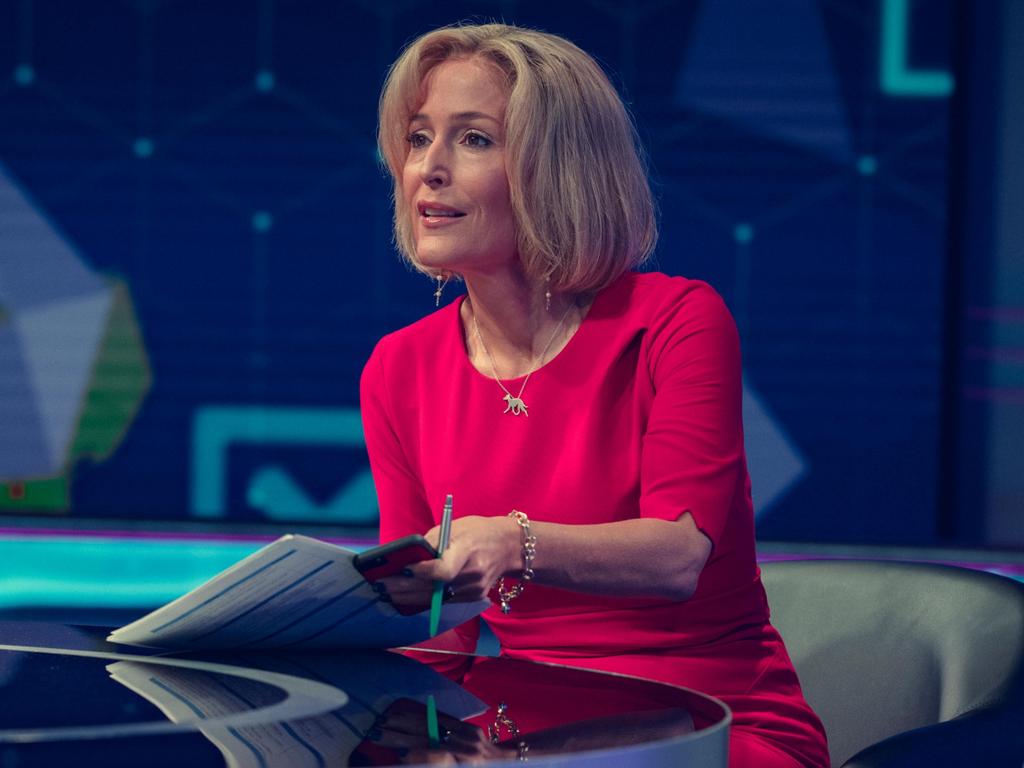I knew of worst allegations against Huw Edwards, says BBC boss
BBC director-general admits he was aware the news presenter had been arrested for possessing the most serious category of sexual images but did not sack the star.

Tim Davie, the BBC director-general, has admitted he was aware that Huw Edwards had been arrested for possessing the most serious category of sexual images but did not sack the star news presenter.
Speaking publicly for the first time since Edwards pleaded guilty to viewing indecent images of children on Wednesday, Davie said the Metropolitan Police had informed the corporation about the severe nature of his offences in November.
However, the BBC chose to continue paying Edwards, who had been suspended since July last year, about $390,000 until his resignation in April.
“We knew it was serious - but we knew no specifics apart from the category of the potential offences,” Davie said.
Under the law, category A images involve the depiction of “penetrative sexual activity; possession of images involving sexual activity with an animal or sadism”. Category B photos are described as involving “non-penetrative sexual activity”, while category C are images of “erotic posing”.
At Westminster magistrates’ court on Wednesday Edwards, 62, admitted to viewing 377 sexual photographs, including 41 indecent images of children, two as young as seven.
Insiders have indicated that the BBC believed that the images were more likely to relate to older individuals after tabloid allegations last July that Edwards had paid a 20-year-old $68,000 and received explicit images from them over a three-year period.
Davie said the BBC was “very shocked” about the nature of the charges when it was informed about them by the Met on Monday. “No one knew about the specifics of what we heard over the last few days, which have been deeply disturbing,” he said. “The primary thoughts here are always for victims of these terrible situations.”

He said the BBC had thought “long and hard” about whether to disclose Edwards’s arrest in November but ultimately decided to follow the Met’s request and keep it secret.
“It wasn’t a knee-jerk decision and it was difficult,” he said. “The police came to us and said, ‘We need to do our work. In total confidence, we have arrested [Edwards] - please keep this confidential’. And at that point, the principle is clear in my mind.”
He said the BBC was mindful of its “very significant” duty of care responsibilities. Edwards had a serious mental health episode and spent time in hospital after his suspension. “I think it was right for us to say we’d let the police do their business and then, when charges happen, we will act,” Davie said.
The Met said it told the BBC in “strict confidence” about the arrest of Edwards in November. The force added that the BBC’s governance department was informed about the arrest on November 8.
“Common law police disclosure is the established legal mechanism through which the police can inform an individual’s employer when they are arrested or alleged to have committed an offence. It is often used where the individual holds a position of trust/responsibility with the public,” it added.
Davie also addressed the controversial decision to continue paying Edwards his full salary of up to $940,000 over the five months between his arrest and resignation. The BBC has previously indicated that its hands were tied as no charges had been brought, but Davie revealed that the BBC is exploring the potential for it to recoup Edwards’s salary over the period.
Sir Keir Starmer said he was “shocked and appalled,” by the case.
Before the interview, Davie spoke to Lisa Nandy, the culture secretary, in an attempt to reassure her that the BBC had acted properly.
The Department of Culture, Media and Sport said: “The secretary of state has spoken to the BBC to raise concerns on a number of points regarding the handling of their own investigations into Huw Edwards, what safeguards and processes had been followed in this case, and additionally, what further action may be taken.”
The Times




